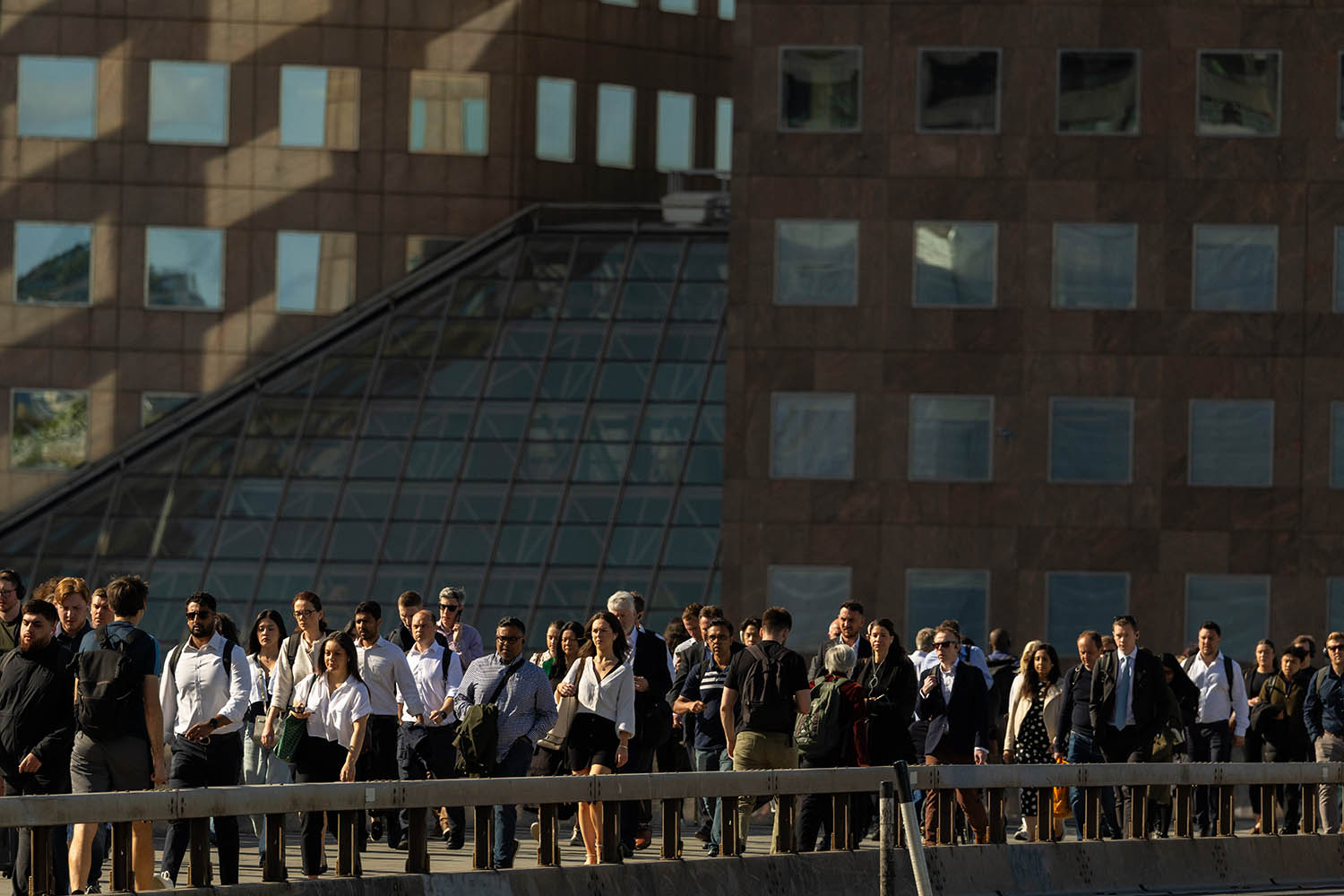The predictions for white-collar work are apocalyptic – up to half of entry-level professional jobs eliminated and unemployment surging by the end of the decade. And across a range of industries over the past few weeks, the AI-related job losses have already begun.
From marketing to consulting to PR, swathes of jobs have been cut, and senior executives say hiring is cooling, with pushback from HR departments whose first question is: couldn’t ChatGPT do that?
In advertising, a chill is sweeping through the labour market, with automation already eliminating many junior roles. Daren Rubins, co-founder of Conker, an executive search firm, described recent cuts in the advertising industry as “brutal” and extending to executive roles. Rubins said: “We have been absolutely inundated with people, including senior people.”
A drumbeat of announcements has signalled the shift. At Microsoft nearly a third of code is written by artificial intelligence (AI). CrowdStrike, the cybersecurity provider, announced it was cutting 500 jobs, around 5% of its workforce, and that AI would “flatten” growth in future hiring. Labour market economists suggest this is a more likely immediate outcome than direct layoffs.
Meanwhile, the government’s public spending review could lead to as many as 50,000 civil service jobs being cut by the end of the decade, partly aided by the shift to AI; internal analysis has found that at the most junior levels, nearly two-thirds of bureaucrats’ time is spent on tasks that can be automated.
The drivers are complex: many service-sector firms are grappling with economic uncertainty, and in some cases there are specific challenges: for McKinsey, which has shed 10% of its workforce, there is also the costly legal fallout from its work for US opioid manufacturers.
But even more optimistic voices paint a picture of a thorough transformation in patterns of cognitive work driven by the increasing abilities of large language models.
One senior executive at an advisory firm said: “We are not at the point of needing fewer people. We are deploying them differently.”
But the same executive said that a colleague at a large European company who wanted to hire new staff was asked to justify why each of the tasks they were recruiting for could not be performed by AI. “On most items, they did not win the debate,” the executive said.
The picture is not uniformly bleak. Klarna, the payment company, was bullish about AI adoption, but Sebastian Siemiatkowski, its chief executive, has beaten a partial retreat, admitting that the AI’s work was of lower quality.
Newsletters
Choose the newsletters you want to receive
View more
For information about how The Observer protects your data, read our Privacy Policy
Economists debate whether, as in previous waves of automation, AI will lead to job creation as well as destruction; the Institute for Public Policy Research has modelled a range of scenarios, from a worst-case situation of “full displacement”, with 8 million jobs lost from the UK labour market, to the rosiest picture of “full augmentation”, in which all at-risk jobs are supplemented by machine intelligence and there are no job losses.
But even optimists accept that junior roles in law and consulting firms are at great risk, meaning a steep reduction in the hiring of graduate trainees. AI startup Anthropic’s chief executive, Dario Amodei, predicts that up to half of entry-level white-collar jobs will vanish in the next five years.
Tech executives such as Amodei and Sam Altman of Open AI tend to be gloomy about jobs, predicting a world of radical and rapid but uneven change, along with increased prosperity – at least for them.
Whichever scenario comes to pass, it has become clear that the cull of white-collar work is happening now, with existing levels of AI technology.
Partners in consulting businesses say there is a premium on in-person interaction and being able to think on the spot. However, elements of consultancy work which involved pattern recognition have been replaced by AI, and in other areas – such as interrogating large datasets – the use of AI has been an advantage.
One of the drivers of work now is adapting to technological change. Three senior consultants said business is booming as companies seek to implement AI technologies: the familiar story of consultants helping other companies trim their workforces, but this time with tech.
A partner at a major consulting firm said: “ A client will hire a consultant to say, ‘Can you help me replace my typical marketing process … and replace it with AI?’”
Photograph by Jason Alden/Bloomberg via Getty Images


